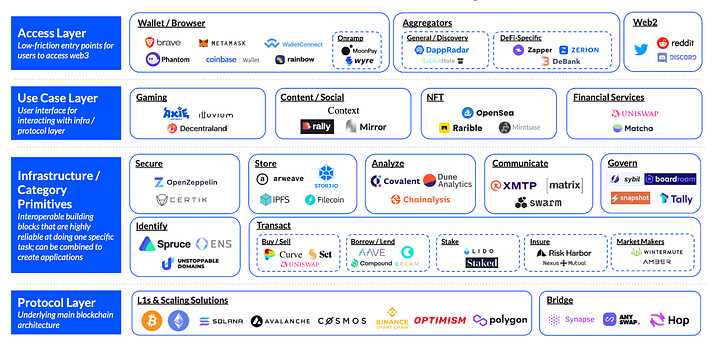
As cryptocurrencies continue to gain popularity and mainstream adoption, more and more people are getting involved in trading and investing in digital assets. However, when it comes to cashing out your cryptocurrency and converting it into fiat currency, such as dollars or euros, there are important tax considerations that you need to be aware of.
First and foremost, it’s important to understand that the tax treatment of cryptocurrencies varies from country to country. While some countries have established clear guidelines and regulations, others are still in the process of developing their tax frameworks for digital currencies. It’s crucial to stay informed about the regulations in your jurisdiction to ensure compliance with the law and avoid any potential penalties or legal issues.
One of the key factors that determine the tax implications of cashing out your cryptocurrency is the length of time you’ve held the asset. In many jurisdictions, if you hold the asset for less than a year before selling it, any gains made from the sale will be considered short-term capital gains and will be taxed at your regular income tax rate. On the other hand, if you hold the asset for more than a year, the gains may be considered long-term capital gains, which are typically taxed at a lower rate.
Additionally, it’s important to keep track of your transactions and report them accurately in your tax returns. Many cryptocurrency exchanges provide transaction history that can be used to calculate your gains or losses. It’s crucial to maintain accurate records of your transactions and consult with a tax professional if needed to ensure proper reporting and compliance with tax laws.
In conclusion, navigating taxes when cashing out your cryptocurrency is crucial to avoid any legal issues or penalties. Understanding the tax regulations in your jurisdiction and keeping accurate records of your transactions are key steps in ensuring compliance and minimizing your tax liabilities. Consulting with a tax professional can also provide valuable guidance tailored to your specific situation and help you make informed decisions regarding your cryptocurrency investments.
Understanding the tax implications

When cashing out your cryptocurrency, it’s important to understand the tax implications involved. Cryptocurrency transactions are subject to taxation, and failing to properly report your cryptocurrency gains or losses can lead to penalties or other legal consequences.
Firstly, it’s crucial to determine whether your cryptocurrency holdings should be treated as an investment or as regular income. The tax classification will depend on the specific circumstances and the country you reside in, so consulting with a tax professional is highly recommended.
Capital gains tax

In many jurisdictions, cryptocurrency is treated as a capital asset, similar to stocks or real estate. This means that any profits you make from selling or trading cryptocurrency will be subject to capital gains tax.
Capital gains tax rates vary depending on how long you held the cryptocurrency before selling it. If you held it for less than a year, short-term capital gains tax rates will apply, which are typically higher than long-term capital gains tax rates.
It’s important to keep track of the purchase price and sale price of your cryptocurrency, as well as any transaction fees incurred, in order to accurately calculate your capital gains or losses.
Reporting requirements

In most countries, including the United States, you are required to report your cryptocurrency transactions on your tax return. This typically involves filling out additional forms, such as Schedule D, which is used to report capital gains and losses.
It’s essential to include all relevant information on your tax return and accurately report your cryptocurrency transactions. Failure to do so can result in audits or other penalties by the tax authorities.
Disclaimer:
This information is provided for general informational purposes only and is not intended as legal or tax advice. It is recommended to consult with a qualified tax professional or accountant for personalized guidance regarding your specific tax situation.
In conclusion, understanding the tax implications of cashing out your cryptocurrency is crucial to avoiding legal issues and penalties. Following the proper reporting procedures and seeking professional assistance can help ensure compliance with tax laws and regulations.
Keeping track of your transactions

When it comes to cashing out your cryptocurrency and dealing with taxes, it’s crucial to keep thorough records of all your transactions. This will help you accurately report your earnings and ensure compliance with tax regulations.
Here are some tips for keeping track of your cryptocurrency transactions:
1. Maintain organized records
Start by creating a dedicated folder or spreadsheet specifically for your cryptocurrency transactions. Include details such as the date of each transaction, the amount of cryptocurrency bought or sold, the value of the cryptocurrency in fiat currency at the time of transaction, and the purpose of the transaction (e.g., purchase, sale, gift, etc.).
2. Use transaction tracking tools

Take advantage of various transaction tracking tools available in the market. These tools can help you automatically record your cryptocurrency transactions, calculate gains or losses, and generate reports that are useful for tax purposes. Consider using popular platforms like CoinTracking, ZenLedger, or Bitcoin.Tax.
3. Keep records of wallet addresses

Keep track of the wallet addresses associated with your cryptocurrency transactions. This will come in handy if you need to verify any transaction details or if you’re ever audited by tax authorities. Make sure to include both the sending and receiving wallet addresses.
4. Record all transaction fees

Don’t forget to record any transaction fees associated with your cryptocurrency transactions. These fees can be deducted from your taxable income, reducing the overall tax liability.
5. Consult a tax professional

If you’re unsure about how to properly handle your cryptocurrency taxes or if you’re dealing with complex transactions, it’s always a good idea to consult with a tax professional. They can provide you with expert advice tailored to your specific situation and ensure that you’re fulfilling your tax obligations correctly.
By keeping track of your cryptocurrency transactions and maintaining accurate records, you can navigate the complexities of taxes more easily and avoid potential issues with tax authorities. Remember, proper record-keeping is essential for tax compliance and peace of mind.
What are the tax implications of cashing out my cryptocurrency?
When you cash out your cryptocurrency, it can trigger tax liabilities. The specific tax implications will depend on various factors, including your country’s tax laws, the amount you cashed out, and how long you held the cryptocurrency. In general, the profit you make from selling cryptocurrency is considered taxable income, and you may need to report it on your tax return.
How do I calculate the taxes on my cryptocurrency earnings?
Calculating the taxes on your cryptocurrency earnings can be complex. It generally involves determining the cost basis (the price at which you acquired the cryptocurrency), the fair market value at the time of sale, and any applicable capital gains tax rates. You may need to consult with a tax professional or use specialized accounting software to accurately calculate your taxes.
Are there any ways to minimize the tax burden when cashing out cryptocurrency?
There are a few strategies that may help minimize the tax burden when cashing out cryptocurrency. One option is to hold the cryptocurrency for at least one year before selling it, as this may qualify you for long-term capital gains tax rates, which are typically lower than short-term rates. Additionally, you may be able to offset your cryptocurrency gains with capital losses from other investments. It’s always best to consult with a tax advisor to determine the best strategies for your specific situation.








